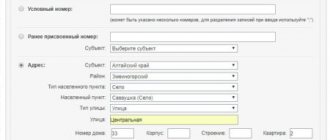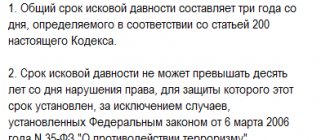In the Russian Federation, property is considered escheated if the heirs have not applied for it, or if these heirs for some reason cannot take ownership. After six months from the opening of the inheritance, such property is transferred to the state through registration in Rosreestr.
Do you want to figure it out, but don’t have time to read the article? Lawyers will help
Entrust the task to professionals. Lawyers will complete the order at the cost you specify
244 lawyers on RTIGER.com can help with this issue
Solve the issue >
The procedure for inheriting escheated property
Article 1154 of the Civil Code of the Russian Federation (Civil Code) allows citizens six months from the time of the death of the testator to submit an application for inheritance. The article also states that if one of the heirs refuses the inheritance, the next in line can receive it within six months from that moment.
If none of the heirs has accepted the property, or none of them can accept it, the procedure for recognizing escheat begins. In particular, this requires one of the following conditions:
- there are no heirs either by will or by law (or nothing is known about them);
- the heirs are excluded from their right or do not have this right under Article 1117 of the Civil Code;
- all the heirs renounced their right and did not indicate to whom it was being transferred;
- no one ever entered into the inheritance within the prescribed period.
In any of these cases, the relevant authority of the local municipality or city begins the procedure for registering escheated property. Such property can be both movable and immovable property, including land, houses, apartments and shares in them.
In some cases, by a court decision, escheated property can be transferred to the heir even after six months. To do this, you will need to prove that the heir did not apply for the inheritance in a timely manner for a good reason.
Commentary to Art. 1151 Civil Code of the Russian Federation
1. According to paragraph 1 of the comment. Art. property is considered escheated if it was not inherited by the heirs by will and (or) by law for any reason, in particular due to the invalidity of the will in relation to all property or part thereof (Articles 1130, 1131 of the Civil Code), physical the absence of all possible heirs (Article 1116 of the Civil Code), their loss of the right to inherit (Article 1117 of the Civil Code), deprivation of their inheritance (clause 1 of Article 1119 of the Civil Code), refusal of heirs from the right of inheritance (Article 1158 of the Civil Code) or from its exercise (Article 1152 of the Civil Code).
It is worth considering that the established doctrine of civil law and current legislation give the term “escheat” a meaning that is unusual for it. Historically, escheat property was understood as a type of ownerless property that was transferred to the state by right of occupation due to the principle of sovereignty (the final title owner of the property is the one on whose territory it is located). Unlike inheritance, in which the acquisition of rights to property is considered a derivative method and, as a result, may be associated with the repayment of debts encumbering such property, escheat meant the receipt of property within the framework of the original method of acquiring property rights, which excluded the presence of any encumbrances in regarding property (for more details, see: Gordon M.V. Inheritance by law and by will. M., 1967. P. 35 - 36). For more details on the relationship between the concepts of “escheatable property” and “ownerless property,” see the commentary. to Art. 116 Civil Code.
2. As a general rule, escheated property passes to the state (Russian Federation) as an heir by law, not included in the special inheritance queue, in the order of universal hereditary succession.
Contained in paragraph 2 of Art. 1151 of the Civil Code, the instruction on the transfer of property into the ownership of the Russian Federation (to the treasury - Article 214 of the Civil Code) is intended to emphasize the nature of the receipt of property by the state (by inheritance), as well as the fact that other types of public entities (subjects of the Russian Federation and municipal entities) do not are heirs by law. An exception is made only in relation to residential premises located on the territory of the Russian Federation, which, since the entry into force of the Federal Law of November 29, 2007 “On Amendments to Part Three of the Civil Code of the Russian Federation” (SZ RF. 2007. N 49. Art. 6042) are transferred by inheritance by law into the ownership of the municipality on the territory of which the residential premises are located (or, respectively, the federal cities of Moscow or St. Petersburg), and are included in the corresponding housing stock for social use.
However, the wording of paragraph 2 of Art. 1151 is inaccurate, since the estate includes property rights and debts that, in principle, cannot be owned by right of ownership.
3. When inheriting escheated property, a number of general rules of inheritance legislation apply, in particular on the composition of the inheritance mass (Article 1112 of the Civil Code), on reimbursement of necessary expenses (Article 1174 of the Civil Code) and liability for the debts of the testator within the limits of the inheritance mass (Article 1175 Civil Code), on the need to issue a certificate of inheritance in the name of the Russian Federation (clause 1 of Article 1153 of the Civil Code), on the procedure for issuing a certificate of inheritance for escheated property, etc.
However, the inheritance of escheated property has many features that are determined not only by the goals of introducing this institution (protecting the rights and interests of creditors and preventing the emergence of ownerless property), but also by the specifics of the legal status of the state as a public entity, which, in accordance with the Constitution, is the guarantor of the right of inheritance (h 4, Article 35 of the Constitution) and acting in civil circulation insofar as this is necessary for the implementation of the tasks of public authority. However, the problem is that many issues related to the inheritance of escheated property have not yet been resolved in legislation.
For example, to acquire an inheritance, a special act of acceptance is not required (clause 1 of Article 1152), and refusal of it is prohibited (clause 1 of Article 1157 of the Civil Code). In this regard, the literature has expressed the opinion that in the case of escheatable property, we are not talking about inheritance, but about receiving such property, since the state does not have the right not to accept the inheritance or refuse it (see: Telyukina M.V. Commentary on Section V of the Civil Code of the Russian Federation // Legislation and Economics. 2002. N 9. Commentary on Article 1151).
Unfortunately, the law not only does not regulate the procedure for identifying escheated property for the purposes of registering inheritance rights, but does not even contain clear instructions regarding the powers of the relevant bodies obliged to accept and record escheated property on behalf of the Russian Federation. It should be noted that an attempt was made to acknowledge the comments. Art. unconstitutional due to the lack of detailed regulation, however, the Constitutional Court refused to accept the complaint for consideration, indicating that the elimination of legislative gaps falls within the competence of the legislator - clause 2.2 of the Constitutional Court Determination of April 21, 2005 N 194-O // The document was not published).
The problem of the lack of clear regulation is most relevant when only part of the property is escheated, and the other is accepted by the corresponding heirs by will or law. When the right of common ownership of heirs arises (Article 1164 of the Civil Code), if the Russian Federation fails to register inheritance rights, objective obstacles arise to the exercise of powers by other co-owners. The literature has expressed the opinion that in such situations, persons who accepted the inheritance have the right to challenge the inaction of the Russian Federation in the person of its bodies in accordance with the provisions of Chapter. 25 of the Code of Civil Procedure (see: Commentary on the Civil Code of the Russian Federation, part three (article-by-article) / Edited by N.I. Marysheva, K.B. Yaroshenko. P. 144 (commentary author - M.L. Shelyutto)).
According to clause 5.35 of the Regulations on the Federal Agency for Management of Federal Property, approved by Decree of the Government of the Russian Federation of June 5, 2008 N 432 (SZ RF. 2008. N 23. Art. 2721) (hereinafter referred to as the Regulations on Rosimushchestvo), Rosimushchestvo accepts in the prescribed manner order of property converted into the ownership of the Russian Federation, as well as escheated property, which, in accordance with the legislation of the Russian Federation, passes by inheritance into the ownership of the Russian Federation (see also: clause 23 of the Methodological recommendations for registration of inheritance rights, approved by decision of the Board of the Federal Notary Chambers dated February 27 - 28, 2007 N 02/07 // Notarial Bulletin. 2007. N 8).
However, in practice, accounting for such escheated property, with the exception of residential premises, is carried out by the tax authorities, although the current Regulations on the Federal Tax Service, approved. By Decree of the Government of the Russian Federation of September 30, 2004 N 506 (SZ RF. 2004. N 40. Art. 3961), such powers are not secured. Currently, the actions of the tax authorities are based on the clarifications given in the letters of the Federal Tax Service “On escheatable property” dated February 19, 2007 N 02-3-04 / [email protected] (the document was not published) and dated December 4, 2008 N ШС-6-3/892 (the document was not published), in which, with reference to the absence of a special law provided for in paragraph 3 of Art. 1151, it is indicated that before its adoption one should be guided by the no longer in force subsection. “k” clause 18 of the Regulations on the State Tax Service of the Russian Federation, approved. Decree of the President of the Russian Federation of December 31, 1991 N 340, as well as the Regulations on the procedure for accounting, evaluation and sale of confiscated, ownerless property, property transferred by right of inheritance to the state, and treasures, approved. Resolution of the Council of Ministers of the USSR dated June 29, 1984 N 683, and the Instruction “On the procedure for accounting, valuation and sale of confiscated, ownerless property, property transferred by right of inheritance to the state, and treasures”, approved. Resolution of the USSR Ministry of Finance of December 19, 1984 N 185 (the document was not published), according to clause 5 of which a document confirming the state’s right to inheritance is a certificate of the state’s right to inheritance, issued by a notary authority to the relevant tax authority no earlier than 6 months from day of opening of inheritance.
In addition, it is indicated that the tax authorities are not obliged to identify escheated property (including conducting any inspections) by the legislation of the Russian Federation. Therefore, the latter exercise powers in relation to escheated property after calling on the Russian Federation, represented by the tax authorities, to inherit this property, and based on the results of receiving a certificate of the state’s right to inheritance, they transfer the corresponding property and title documents to the Federal Property Management Agency.
Considering, however, the legal nature of such letters from the Federal Tax Service, it is obvious that such clarifications are not enough to eliminate legislative gaps.
4. Other problems of inheritance of escheated property can be identified. Thus, missing a deadline for accepting an inheritance, as a general rule, leads to the loss of the corresponding rights if the missed deadline is not restored in court or if all the heirs who accepted the inheritance do not agree in writing to accept the inheritance after the expiration of the deadline (clause 1, 2 Article 1155 Civil Code). In the literature, the opinion has been expressed that since the state is recognized as the guarantor of the right of inheritance, it not only has the right, but is obliged to give its consent to the acceptance of the inheritance after the expiration of the term by the corresponding heir, even regardless of his request (see: Commentary on the Civil Code of the Russian Federation, part three (article by article) / Edited by A.L. Makovsky, E.A. Sukhanov, pp. 200 - 201 (commentary author - A.A. Rubanov)). It is also believed that, due to the constitutional guarantee of inheritance, the state does not have the right to challenge a rebuttable presumption of acceptance of inheritance (clause 2 of Article 1153 of the Civil Code) (see: Commentary on the Civil Code of the Russian Federation, parts one, two, three (item by article) / Ed. T.E. Abova, M.M. Boguslavsky, A.G. Svetlanov (commentary author - A.A. Rubanov)).
Of course, the above positions are quite reasonable. However, it is obvious that in the conditions of insufficient legislative regulation and taking into account the purpose of the institution of escheat (preventing the ownerlessness of property and protecting the rights and interests of creditors), the above situations must be resolved taking into account all the circumstances in each specific case. It is assumed that these and other similar issues related to escheatable property will be resolved in a special law, the adoption of which is provided for in paragraph 3 of the comment. Art.
Recognition of property as escheat
In the Russian Federation, the procedure is carried out relatively rarely and, as a rule, in relation to property with large debts: Article 1145 of the Civil Code of the Russian Federation regulates 7 lines of inheritance. That is, there are almost always distant relatives who inherit.
Even if the heir did not submit an application within the prescribed period, the court may recognize him as the owner on the basis of Article 1153. For example, if a citizen paid bills for the communal property in the inherited apartment, lived in it or otherwise participated in its maintenance, there is a high chance of refusal to recognize escheat.
What is the judicial practice?
In practice, there are many cases where property can become escheatable. However, in the absence of accounting, it is rarely declared as such.
Also, there is no need for permission to purchase escheat property, but courts often refuse to satisfy the claim due to lack of proof that the property became the property of the state as part of escheat property.
It turns out to be a rather contradictory situation. Many lawyers propose to enshrine in the law that proof of the transfer of property into state ownership is the receipt of a certificate of the right to escheat inheritance.
Thus, creditors will be able to apply only to those state and local government bodies that have this certificate. But this situation will lead to a large amount of ownerless property.
The lack of regulation of a number of issues at the federal level regarding the inheritance of escheat property requires the adoption of a special law that will establish the rules for the inheritance of escheat property and its accounting.
Who has the right to inherit
The right to inherit property recognized as escheat has:
- Russian Federation.
- Subjects of the Russian Federation.
- Municipal entities.
Municipalities inherit a succession consisting of housing stock as well. land plots located within their territory and not owned by the state. As well as the testator’s shares in them.
Cities with federal status - as well as municipalities, in the territory under their jurisdiction. Other subjects of the Russian Federation inherit other successions in accordance with the legislation of such subjects. The Russian Federation inherits the rest of the property.
Acquisitive prescription
Anyone who understands what escheat housing is should also know some of the legal nuances that make it possible to obtain it. Situations often arise in which, after the death of the owner of a part of a communal living space, the room is occupied by a neighbor on the basis of its ownerlessness. Provided that within 15 years the administrative body or other person does not contact the tenant with a justified claim, then the part remains in the use of the neighbor.
If a co-owner or cohabitant lives in the house, and he retains the right to use for fifteen years, then he is allowed to keep the living space for himself.
When housing is transferred to a different status by mistake, and the government body has already transferred the proceeds from the auction to the budget or transferred the area as social housing, then it no longer seems impossible to return the money to the legal heir after the death of the owner.
Peculiarities of consideration of certain categories of court cases
During the course of judicial practice in cases of escheated inheritance, a generalized assessment of certain facts has been formed that are essential for making a fair decision.
Escheated property and credit debts
If the testator's property has become escheated, his successors, for one reason or another, who have not accepted the succession, will not inherit the testator's debts. Knowing this, cunning successors do not accept succession precisely for this purpose, while continuing to use the property of the deceased.
In order to stop this practice, the courts, in the context of a case of debt collection under loan agreements, recognize the heir using the inherited property as having actually accepted the succession. At the same time, the actual acceptance of the inheritance does not make the successor the owner of the testator's property.
Registration of such property is carried out in accordance with the general procedure, which means only through the court. At the same time, the court's determination of the actual acceptance of succession may be the basis for extending the period for entering into succession. But if, at the time the creditor goes to court, the owner of the property is the escheated successor, the debt will be collected from him.
How are the debts of the testator for escheated property inherited?
It all depends on when the creditor applies for debt collection. If, at the time of going to court, the property is already escheated, but the notary has not issued a notarial certificate to anyone, the succession is sold at auction, the debt to the creditor is repaid with the proceeds, and the remaining funds are inherited as escheat.
If at the time of filing the claim, the escheated successor acquires ownership of the entire escheated property, he will also be liable for the obligations of the testator.
If the escheated successor formalized only part of the inheritance, he will be liable for his debts. only if the proceeds from the sale of property included in the unaccepted part of the succession are not sufficient to repay the debt.
Unclaimed shares of land plots
A common mistake made by municipalities is to file a claim for recognition of ownership of unclaimed shares of land plots of deceased testators without successors. When bringing such a claim, administrations forget that if the share of the land plot was not claimed by the testator during his lifetime, he never acquired ownership rights to it, which means that it is not part of the succession.
Another thing is that municipalities receive ownership rights to unclaimed shares in accordance with the Land Code. Therefore, courts usually satisfy such claims, going beyond the scope of the claims.
But it will no longer be possible to avoid collecting the debts of the successors of the owners of unclaimed land shares. For the same reason - an unclaimed share is not an escheat.
How is an escheated residential property inherited?
The design is identical to ordinary inheritance. Escheatable housing is transferred after confirmation of the death of the owner.
To transfer ownership it is necessary:
- establishing the fact of the death of the owner of the home;
- drawing up a certificate of absence of heirs;
- confirmation of the absence of testamentary documents.
The authorized municipal body contacts the notary and provides documentation that confirms the existence of grounds for legal inheritance of real estate. The status of the applied heir is confirmed by relevant documentation.
Important! The administrative body does not have the right to refuse the property of the deceased.
The procedure for transferring ownership of escheated housing
The administrative representative submits an application to register the transfer of ownership. After the opening of the inheritance, a certificate is required to be issued, which confirms the right to the inheritance. Next, registration is carried out - it is done at the Rosreestr office.
All stages of registration must be completed within the time frame regulated by law (six months).
A package of documents for entry into ownership is drawn up. When accepting an escheated inheritance, the deadline must be observed, which by law is 6 months. Then the authorized person is issued a certificate and registration is carried out.
Algorithm for registering an escheat apartment
Instruction of the Ministry of Finance of 1984 No. 185 established the sequence of registration of an escheat apartment.
Key steps include:
- obtaining from a notary an official certificate that property liability is acquired;
- registration of the received living space in the State Property Committee;
- the act is transferred to the tax authority for storage;
- examination/assessment is carried out;
- putting up property for auction;
- the money received from the sale of property goes to the state budget.
The apartment, which belongs to the Municipal Housing Fund, in any case remains in use and is issued to civilians under a social rental agreement.
Important! If relatives begin to apply for an apartment, then they can declare their rights to living space received by the state.
Can they be evicted from an escheat apartment?
Eviction from an escheat apartment is carried out legally, since the owner of the apartment is a government agency. However, a lease agreement can be concluded with the new owner.
If a family has lived in this apartment for 15 years, then it can officially obtain ownership of this housing.






